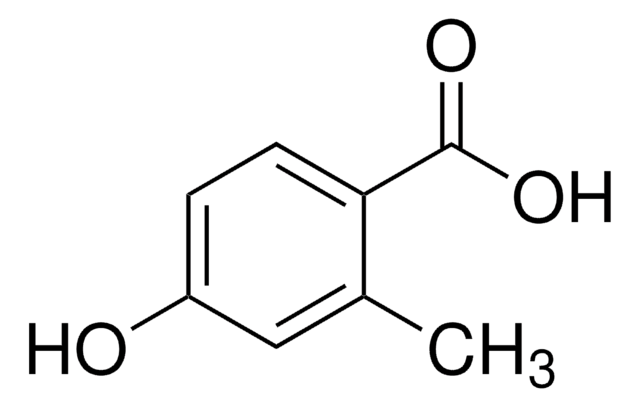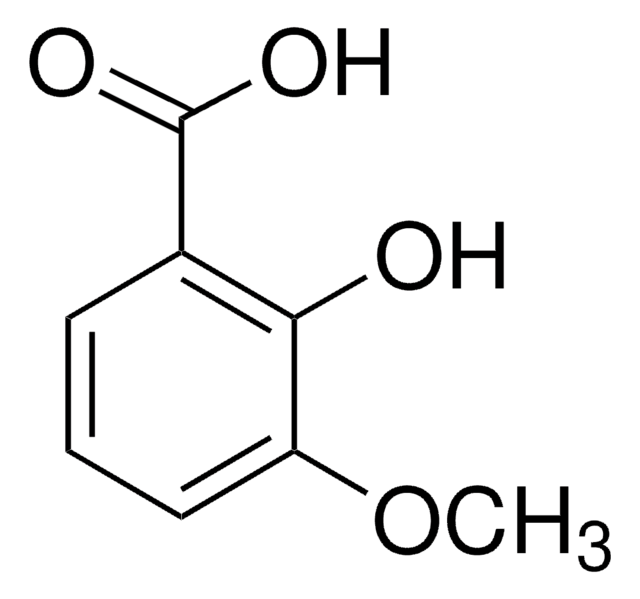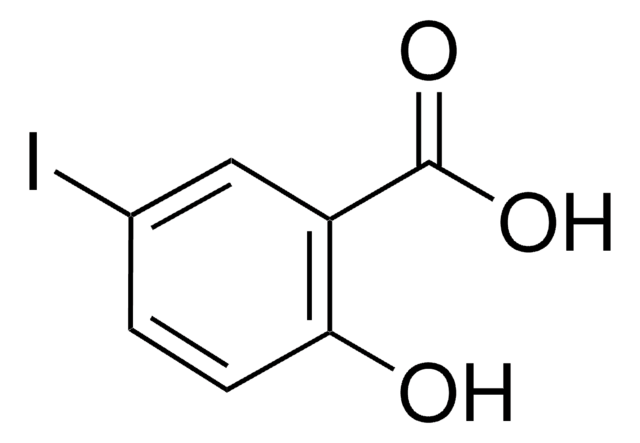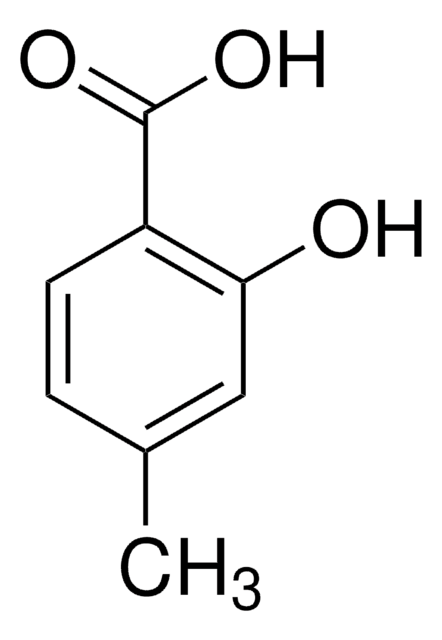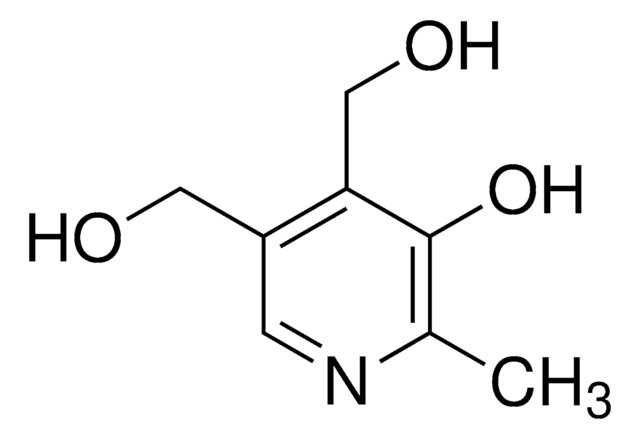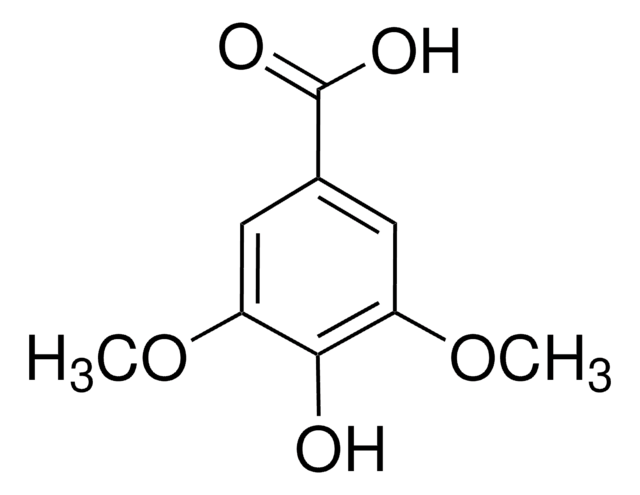173479
2-Hydroxy-4-methoxybenzoic acid
99%
Synonym(s):
4-Methoxysalicylic acid
Sign Into View Organizational & Contract Pricing
All Photos(2)
About This Item
Linear Formula:
CH3OC6H3(OH)CO2H
CAS Number:
Molecular Weight:
168.15
EC Number:
MDL number:
UNSPSC Code:
12352100
PubChem Substance ID:
NACRES:
NA.22
Recommended Products
Quality Level
Assay
99%
mp
158-159 °C (lit.)
SMILES string
COc1ccc(C(O)=O)c(O)c1
InChI
1S/C8H8O4/c1-12-5-2-3-6(8(10)11)7(9)4-5/h2-4,9H,1H3,(H,10,11)
InChI key
MRIXVKKOHPQOFK-UHFFFAOYSA-N
Related Categories
Application
2-Hydroxy-4-methoxybenzoic acid (4-methoxysalicylic acid) was used in the synthesis of 1,3,4-oxadiazole derivatives.
Signal Word
Warning
Hazard Statements
Precautionary Statements
Hazard Classifications
Eye Irrit. 2 - Skin Irrit. 2 - STOT SE 3
Target Organs
Respiratory system
Storage Class Code
11 - Combustible Solids
WGK
WGK 3
Flash Point(F)
Not applicable
Flash Point(C)
Not applicable
Personal Protective Equipment
dust mask type N95 (US), Eyeshields, Gloves
Certificates of Analysis (COA)
Search for Certificates of Analysis (COA) by entering the products Lot/Batch Number. Lot and Batch Numbers can be found on a product’s label following the words ‘Lot’ or ‘Batch’.
Already Own This Product?
Find documentation for the products that you have recently purchased in the Document Library.
Zhi-Ming Zhang et al.
Bioorganic & medicinal chemistry, 20(10), 3359-3367 (2012-04-24)
A series of 1,3,4-oxadiazole derivatives derived from 4-methoxysalicylic acid or 4-methylsalicylic acid (6a-6z) have been first synthesized for their potential immunosuppressive activity. Among them, compound 6z displayed the most potent biological activity against lymph node cells (inhibition=38.76% for lymph node
Francesca Bonvicini et al.
The new microbiologica, 41(3), 187-194 (2018-06-07)
Herpes simplex virus types 1 (HSV-1) and 2 (HSV-2) cause several clinically relevant syndromes in both adults and neonates. Despite the availability of efficient anti-HSV agents, the search for new therapeutic approaches is highly encouraged due to the increasing drug
Fei Zheng et al.
Xenobiotica; the fate of foreign compounds in biological systems, 49(9), 1025-1032 (2018-10-24)
1. Anthocyanins (ACNs) are a subclass of polyphenolic pigments belonging to the flavonoids and constitute an important group of human diets. There is accumulated evidence that consumption of ACN-rich diets such as Vitis amurensis Rupr of "Beibinghong" exerts protective activities
Lenka Applová et al.
Molecular nutrition & food research, 63(20), e1900261-e1900261 (2019-07-26)
Intake of flavonoids from the diet can be substantial, and epidemiological studies suggest that these compounds can decrease the incidence of cardiovascular diseases by involvement with increased platelet aggregation. Although parent flavonoids possess antiplatelet effects, the clinical importance is disputable
Violetta Mohos et al.
International journal of molecular sciences, 20(11) (2019-06-05)
Quercetin is an abundant flavonoid in nature and is used in several dietary supplements. Although quercetin is extensively metabolized by human enzymes and the colonic microflora, we have only few data regarding the pharmacokinetic interactions of its metabolites. Therefore, we
Our team of scientists has experience in all areas of research including Life Science, Material Science, Chemical Synthesis, Chromatography, Analytical and many others.
Contact Technical Service